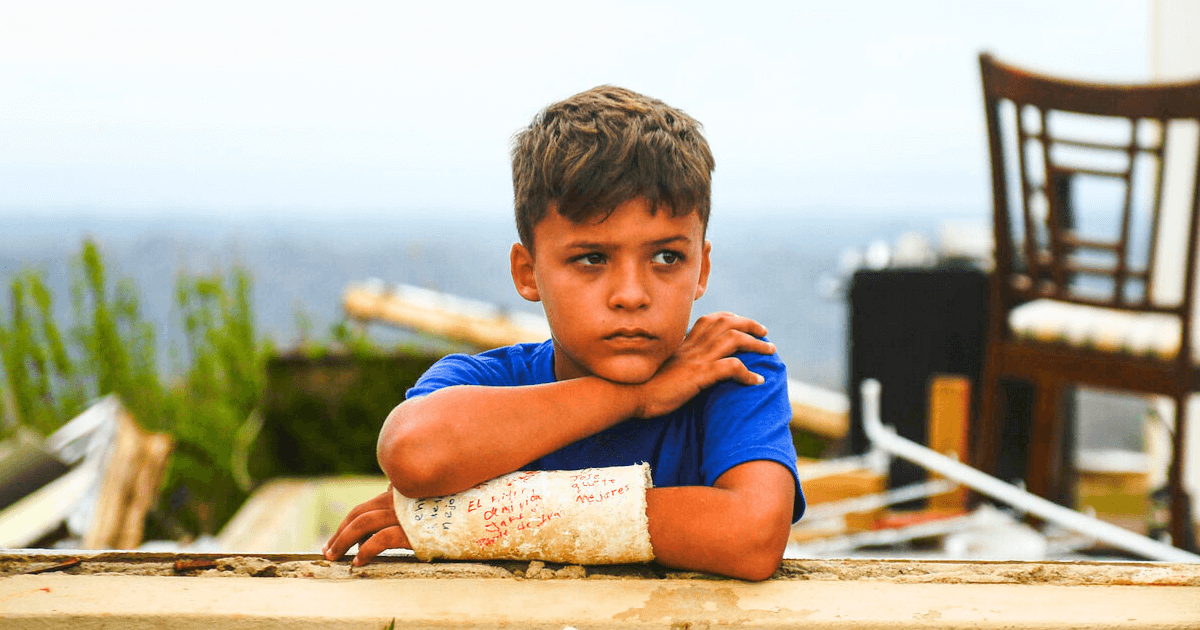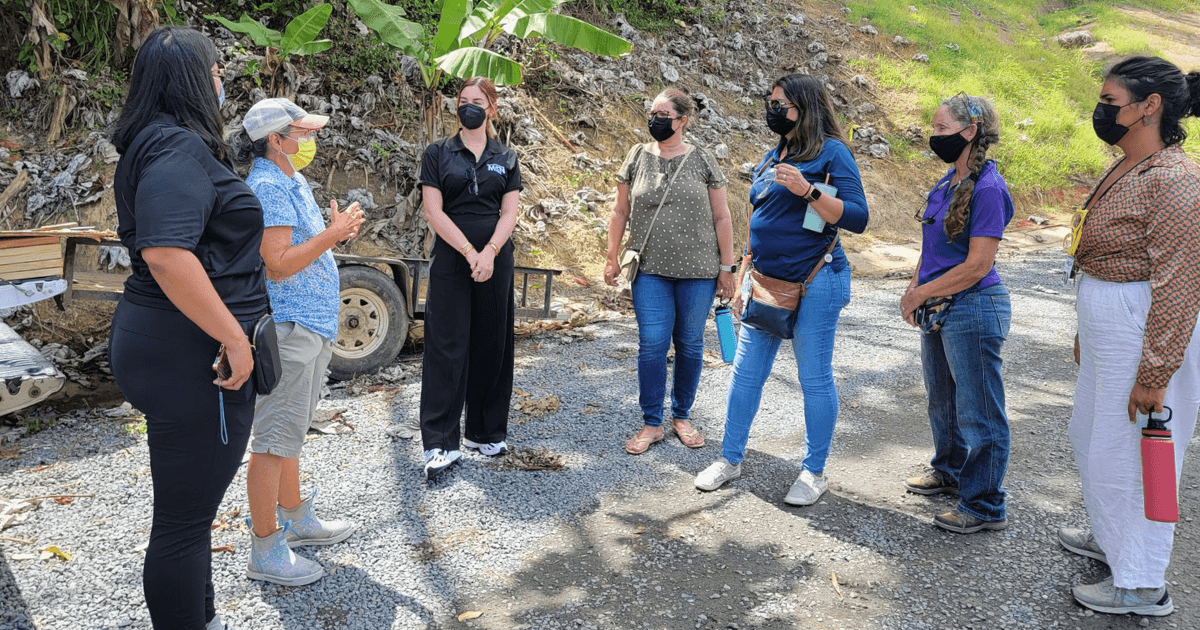Six Years after Hurricane María: Disaster Still Marks Communities, Leaves Lessons on Climate Impact

Jake Rios Torres, 9, watches as relief teams deliver supplies in the wake of Hurricane María.
[Editor’s note: On this sixth anniversary of the passage of Hurricane María through Puerto Rico and part of the US Virgin Islands, we go over the different community efforts to improve the quality of life and resilience of the affected populations, as well as the areas of opportunity that we still have, to improve our institutional response to the impacts of the climate crisis.]
Today marks the sixth anniversary of Hurricane María passing through Puerto Rico and part of the US Virgin Islands. The Category Five hurricane caused thousands of deaths and billions of dollars’ worth of damages to infrastructure and agriculture – and the region has still not recovered. Although communities quickly organized to push forward their local recovery processes, the government recovery process has lagged behind, exposing serious barriers and challenges to relying on government assistance for the bulk of recovery. Part of these challenges was government response to new emergencies that arose during these past six years, such as the COVID-19 pandemic and other climate emergencies including Hurricane Fiona in 2022. Another part was their management of a disaster of this magnitude, and the amount of work to not only restore what was affected but also make it resistant to new climate events known to occur as part of the impact of the climate crisis in this region.
And recovery is ongoing. Infrastructure continues to be unable to hold up to climate-fueled disasters. During Hurricane Fiona, the power grid again failed and residents were once again in darkness, demonstrating its ongoing vulnerability. For their part, however, communities continue their recovery efforts on the islands, while remaining vigilant as the 2023 hurricane season progresses. Throughout these six years, Migrant Clinicians Network has participated in and supported these local communities’ organization and mobilization. These localized responses to disaster are a critical track to recovery that must occur simultaneously with the oftentimes slower federal response. MCN not only facilitates these efforts, but then takes lessons from these community approaches to share with other regions that could face similar disasters.

The MCN team in Puerto Rico works closely with partners to improve the disaster response in their communities.
To do this work, we have collaborated with various partners and organizations to support and encourage community mobilization in response to the environmental challenges of the climate crisis. We have worked closely with community-based organizations, community health centers, schools, and agricultural workers to strengthen the response and recovery to these disasters. In 2018, our team in Puerto Rico led, together with community health centers, the effort to develop community emergency plans to respond to various disasters, including hurricanes, earthquakes, and public health emergencies. Thanks to the support of the Bristol Myers Squibb Foundation, we facilitated emergency preparation for six health centers and eight communities in Puerto Rico. The development of tools and their reach were recently expanded through a CDC Foundation-funded project, where we directly impacted 181 school nursing, health care, and community outreach workers, indirectly reaching around 340,000 individuals in Puerto Rico and extending it to regions of the United States such as Dallas, Texas. Other efforts with communities include our environmental education curriculum, developed with and for schools in Puerto Rico, and training efforts for first responders to respond to climate and public health emergencies as part of our collaboration with the NIEHS-funded Atlantic Center for Occupational Health and Safety Training at Rutgers University. In the latter, we have reached over a thousand workers in the past three years, including teachers, school nurses, Puerto Rico Health Department personnel, community first responders, and health care personnel. This year, we will be beginning one project in the Caribbean alongside several partners, where we aim to directly engage more than 1,600 agricultural workers to promote and strengthen food security. This is part of a USDA grant.
There is still much to do today. Puerto Rico continues the process to recover. There are more than three thousand houses that still need safe roofs; houses with blue tarps across their roofs still dot the landscape. At the same time, individuals are concerned about eligibility and processes to acquire decent and risk-free homes. Funding application processes for community and research projects also have opportunities to improve. Like MCN, other local community-based organizations have opted to facilitate and direct efforts towards participatory and inclusive initiatives where the community leads emergency management and recovery. It is important that when creating opportunities, we consider who could have access to these funds and how to facilitate them so that we do not perpetuate the colonization of disaster-related funding. That is, we want local communities to be the ones who can lead the research, mobilization, and recovery processes. This framework is imperative for effectively developing and implementing programs to increase, strengthen, or develop resiliency.
Learn more about our work in Puerto Rico and on climate resilience and emergency management:
www.migrantclinician.org/our-work-climate-crisis/emergency-preparedness-response-and-recovery
- Log in to post comments
